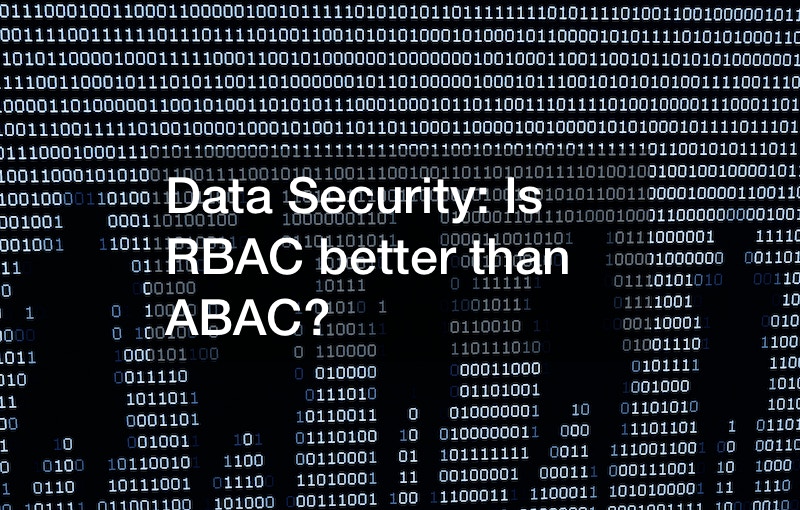Data Security Is RBAC better than ABAC?
Disclaimer: Geek Support Tech. This site provides computer and technology content for informational purposes only.
In the realm of data security, understanding and implementing effective access control is paramount. Two prominent concepts, Role-Based Access Control (RBAC) and Attribute-Based Access Control (ABAC), play vital roles in shaping access management strategies. Let’s explore the comparison between these two models to discern whether RBAC is superior to ABAC.
Role-Based Access Control (RBAC): Streamlining Access
RBAC operates on the principle of limiting resource access based on assigned user roles. In large organizations, users are categorized into specific roles that dictate the resources they can access.
For instance, in a healthcare setting, a doctor might have access to patient records, while a nurse is limited to patient vitals. RBAC simplifies access management by reducing the number of policies, streamlining the process for large user groups.
Attribute-Based Access Control (ABAC): Flexibility for Complexity
In contrast, ABAC offers a more flexible approach to access control, considering a broad spectrum of factors when granting resource access. These factors can include user attributes like job title, department, location, or even the time of day. ABAC excels in organizations with intricate access control requirements, allowing for granular permissions through the ABAC model. For instance, a trader may only have access to trading systems during specific hours, showcasing the granularity of ABAC.
Comparing RBAC and ABAC: Key Differences
The primary distinction lies in the focus on roles in RBAC versus the consideration of various attributes in ABAC. RBAC suits organizations with a rigid access control structure, providing simplicity for managing user access. On the other hand, ABAC’s adaptability is ideal for complex scenarios where users require fine-grained control over resource access. However, the ABAC model for granular premissions introduces complexity in management due to the increased factors influencing access decisions.
Conclusion: Choosing the Right Model for Enhanced Security
In conclusion, the choice between RBAC and ABAC hinges on the organization’s specific needs. RBAC excels in simplicity and ease of management, making it suitable for large enterprises with well-defined roles. Conversely, ABAC offers unparalleled flexibility and granularity, catering to organizations with intricate access control requirements. Leveraging the strengths of each model is crucial to enhancing data security and safeguarding against unauthorized access in today’s dynamic digital landscape.
.

